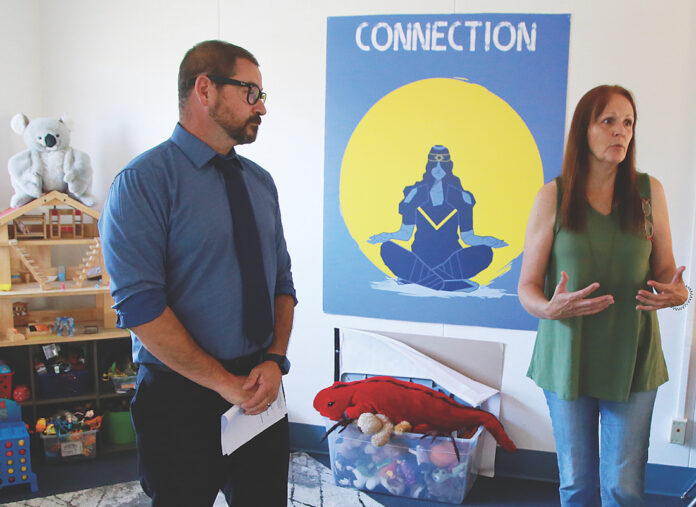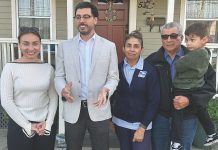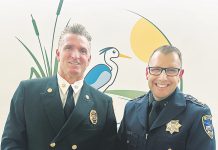
WATSONVILLE—As thousands of students throughout Pajaro Valley Unified School District bid farewell to their summer and prepare for a new year, educators and school employees are readying classrooms, sharpening pencils and honing their lesson plans.
Such back-to-school preparations have always been a normal part of a new school year. But thanks to the Covid-19 pandemic, which forced young people worldwide into a yearlong distance learning regime, school is still far from normal for many kids.
This has in many cases compounded trauma for students already facing such issues as poverty, hunger and violence.
And so educators have had to look for ways to adapt to this changing landscape.
For PVUSD, this includes the creation of its first Family Engagement and Wellness Center, which opened in December. It is here that students and their families can access services from several nonprofits, in addition to receiving food from Second Harvest Food Bank.
While offering such services at schools is not a new idea, the Wellness Center represents a shift toward bringing the students’ families into the loop, says PVUSD Student Services Coordinator Ben Slyder.
Among other things, the families can attend classes on topics such as positive discipline, dealing with depression and bullying.
“We recognize we need to focus and serve the whole child, and we have been doing that for many years,” Slyder said. “But we have now shifted that focus to the whole parent and the whole community as well.”
Slyder says that the trauma stemming from the pandemic has a wide-ranging impact that can hinder students’ long-term academic plans.
“Having a place like this allows for those connections between the adults and students, to help individuals think of those goals and have hope in knowing that, ‘yes this is where I am now,’ but recognizing it doesn’t have to be that way,” he said. “We can move forward in a different way. And having adults here on campus to help support that transformation is at the core of what we do here at the wellness center.”
For PVUSD mental health clinician Nancy Broxton—a licensed marriage and family therapist—this philosophy is paramount.
“I know that helping to support the whole family is one of the most important things I can do in order to change a kid’s life,” she said.
The center—open to any district student and their family—brings the services of Pajaro Valley Prevention and Student Assistance, Salud Para la Gente and Community Action Board under one roof, in addition to nutrition services.
This is not the only place in PVUSD to receive such services. Watsonville and Pajaro Valley high schools have their own resource centers, as do Pajaro, Rolling Hills and Cesar Chavez middle schools, where students can access services that include Dientes Community Dental.
But the Family Engagement and Wellness Center—located in a portable unit on the outskirts of E.A. Hall Middle School near downtown Watsonville—is the first created as a “one-stop shop,” offering a comprehensive range of services.
One room is designated as the “co-op,” which is packed full of shelves, all stocked with food from Second Harvest, where families can select food twice per week. This includes peanut butter, rice, milk, pasta and more.
The center also coordinates with Martha’s Kitchen—a 40-year-old organization based in San Jose that makes meals for homeless people—to provide hot meals once a week for the families.
Another of the rooms has been converted to a counseling center, where Broxton offers her services, which she says are not limited to mental health help.
“I can feed them,” she said. “I can take them right next door to the Food Bank. I can solve that immediate problem, and then figure out how we can help. How do we change the home and how do we change everything? And then deal with the trauma. Because if I’m not doing the basics first then I can’t get to the therapeutic part.”
Last year, Broxton said she served roughly 70 students throughout the school district and reckons she’ll see anywhere from 30-40 families at any given time.
While she says that the importance of counseling services in a post-pandemic world cannot be overstated, Broxton adds that she has seen one positive: an unprecedented growth in acceptance of such services.
Many families, she says, are excited when they see the “counseling” sign.
“I think we have all come to the conclusion that we need help and that we need to rely on each other,” she said. “And so I see a lot more openness to therapy.”
For information, visit wellness.pvusd.net/home.












